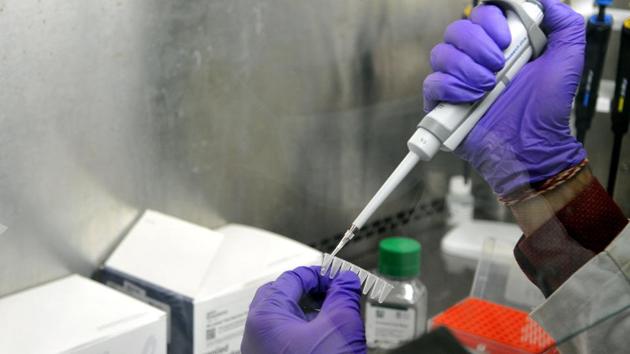How the coronavirus crisis may feed anti-microbial resistance
Until there is evidence that Sars-CoV-2 is associated with bacterial or fungal co-infections, antibiotics should not be prescribed and the patients must be treated symptomatically
Developing countries are reeling under the burden of drug-resistant infections. Poor availability and utilisation of diagnostics and compromised infection-control in communities and hospitals result in an overuse of anti-microbials. It contributes to the development of highly-resistant pathogens which are difficult to destroy. It is well-known that diarrhoea and upper respiratory tract infections are usually caused by viruses, but account for more than 60% of anti-microbial prescriptions. With an increasing focus on anti-microbial resistance globally, India has initiated small but important steps to introduce anti-microbial stewardship to rationalise its prescriptions in hospitals.

The coronavirus disease (Covid-19) pandemic threatens to undermine these efforts, more so in resource-poor settings with fragile health systems. Like most other viral respiratory tract infections, Covid-19 is self-limiting and causes a mild form of the disease in most patients. In the absence of a specific antiviral treatment, patients are prescribed antibiotics in hospitals across the world.
Research published in China, Italy and the United Kingdom show that the majority of people hospitalised with Covid-19 infection were given antibiotics despite little evidence of associated bacterial infections. Although there are no published reports from India, anecdotal evidence suggests that bacterial co-infections are infrequent in patients with suspected severe Covid-19 requiring hospitalisation.
With labs quickly shifting their focus to Covid-19 and deprioritising cultures/anti-microbial susceptibility testing, evidence of secondary bacterial or fungal infections in Covid-19 patients is limited. Not enough cultures are being sent for confirmation for the presence of secondary bacterial or fungal infections from Covid-19 patients. There is a significant risk to the laboratory staff collecting samples and technicians processing them due to the shortage of personal protection equipment (PPE) and biosafety challenges in the labs.
Such concerns have led many hospitals not conducting routine microbiological examination on Covid-19 patients, undermining the diagnosis and treatment of secondary infections. Since it is challenging to distinguish between bacterial or fungal infections and existing viral pneumonia based on clinical symptoms and radiological findings, the microbiological examination will be valuable for diagnosing secondary infections to guide anti-microbial prescription. It’s imperative to strengthen the investigation of secondary infection and/or co-infection in Covid-19 patients at all health facilities without compromising the safety of the laboratory staff.
Until there is evidence that Sars-CoV-2, the virus that causes Covid-19, is associated with bacterial or fungal co-infections, antibiotics should not be prescribed and the patients must be treated symptomatically. Even when antibiotics are prescribed, the narrowest spectrum agent should be prioritised to target the likely pathogens. India has very high resistance rates to some of the broad-spectrum anti-microbials. It is advisable that such antibiotics should be reserved for situations in which the differentiation between the bacterial and viral aetiology is not possible based on clinical symptoms. If symptoms are severe, antibiotics should be prescribed based on local epidemiology and antibiograms (susceptibility of a specific micro-organism to a battery of anti-microbial drugs). If Sars-CoV-2 infection is confirmed, the antibiotic prescription should be reviewed and discontinued, unless there is clear evidence of bacterial co-infection.
In the absence of a vaccine and doubts about Sars-CoV-2 immunity, the coronavirus pandemic may last longer than expected. Having better infection control practices are expected to bring down the incidence of hospital-acquired infections. Yet, there will always be a chance that a certain percentage of patients may require anti-microbials to treat secondary infections. The pipeline of new anti-microbials is running dry and no novel antimicrobials are in immediate sight. We will need antimicrobials long after the coronavirus crisis is over.
It is, therefore, important to define indications of antibiotic use in Covid-19 patients and follow the principles of anti-microbial stewardship. If indiscriminate prescribing continues, it will compromise the gains the country has made by introducing anti-microbial stewardship in hospital. Treading with caution and using the available anti-microbials judiciously will save us from jeopardising anti-fungal and anti-bacterial treatments after Covid-19 is over.
Kamini Walia is the programme officer, anti-microbial resistance, Indian Council of Medical Research. The views expressed are personal
The views expressed are personal



